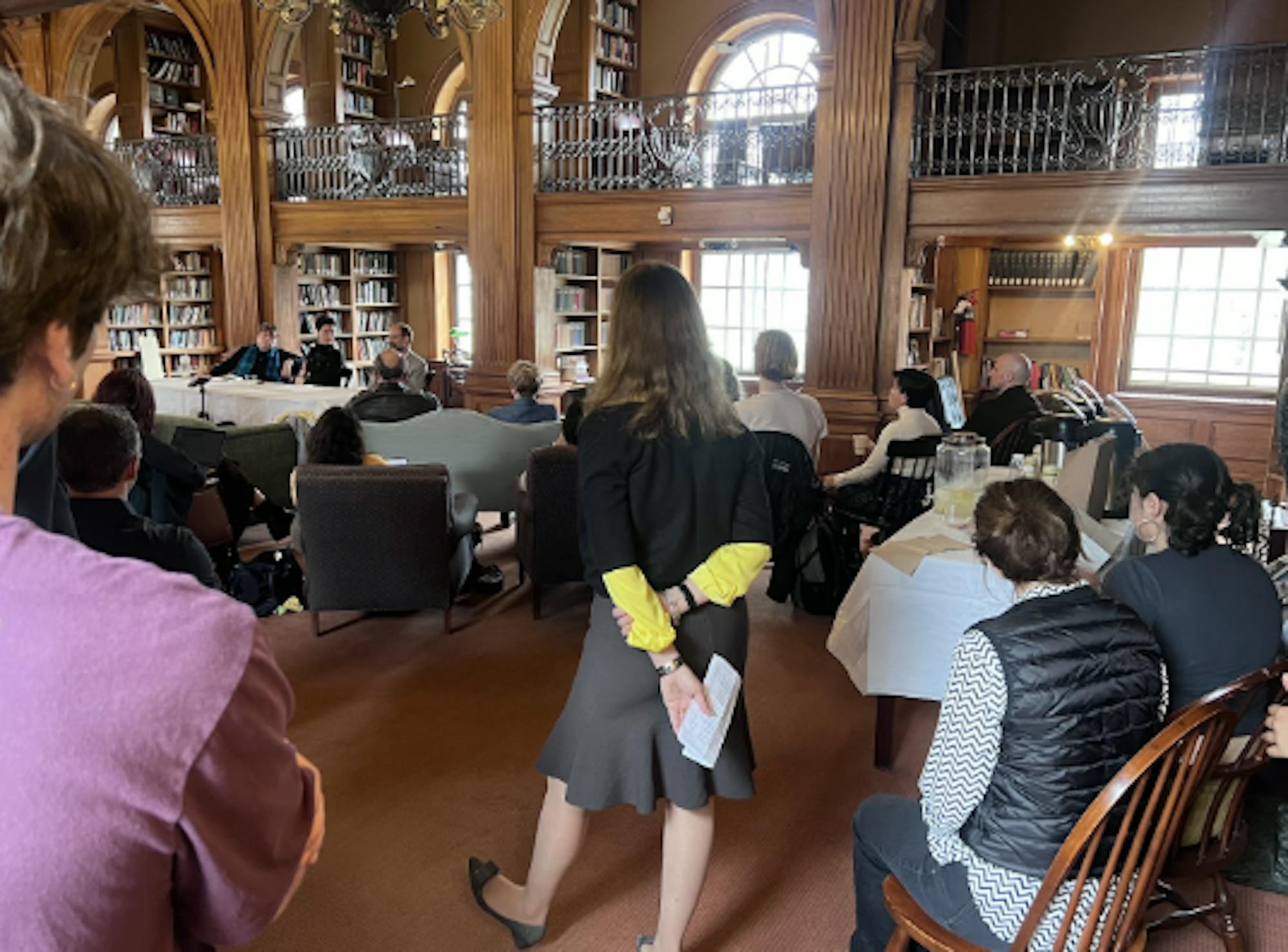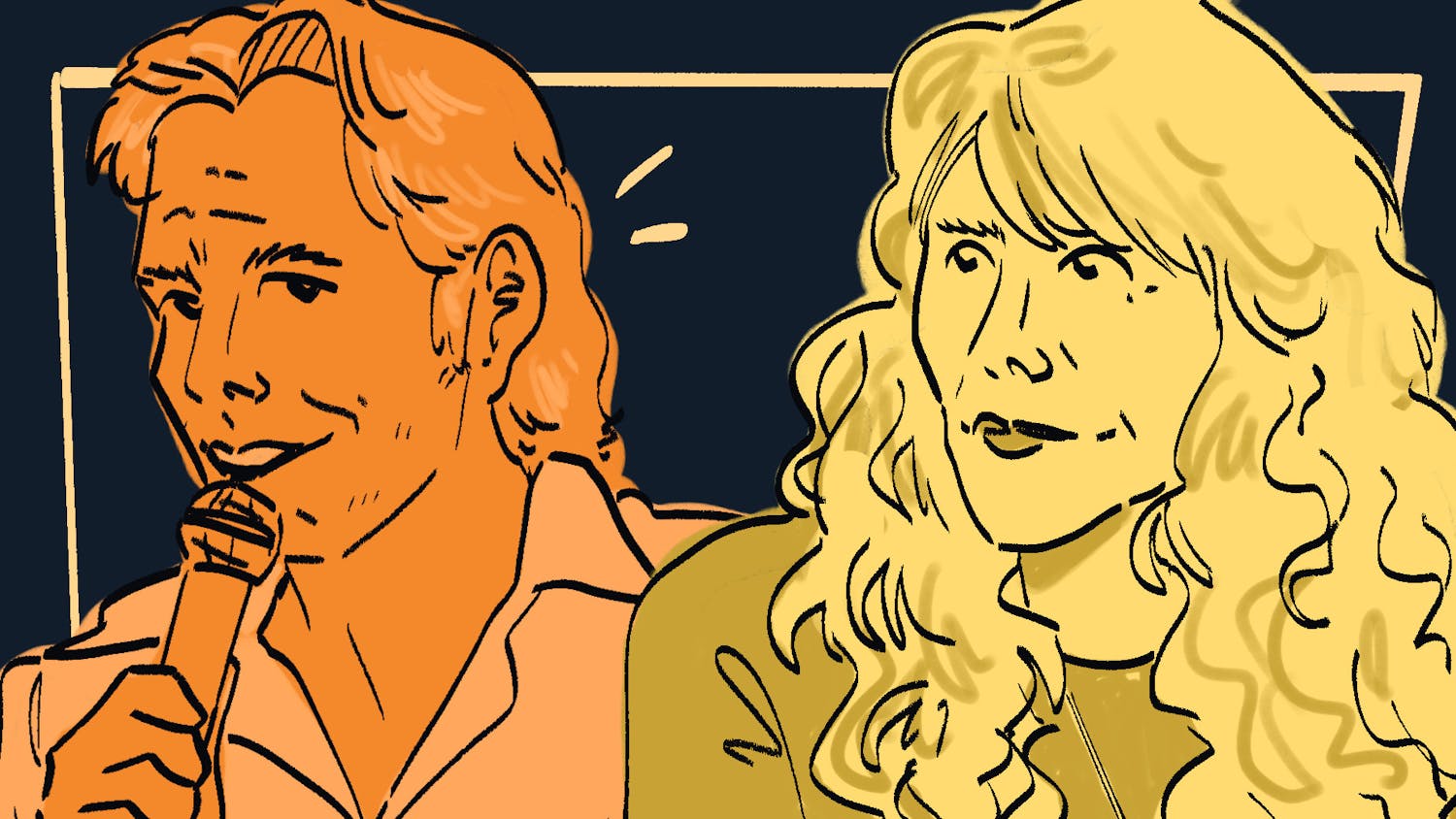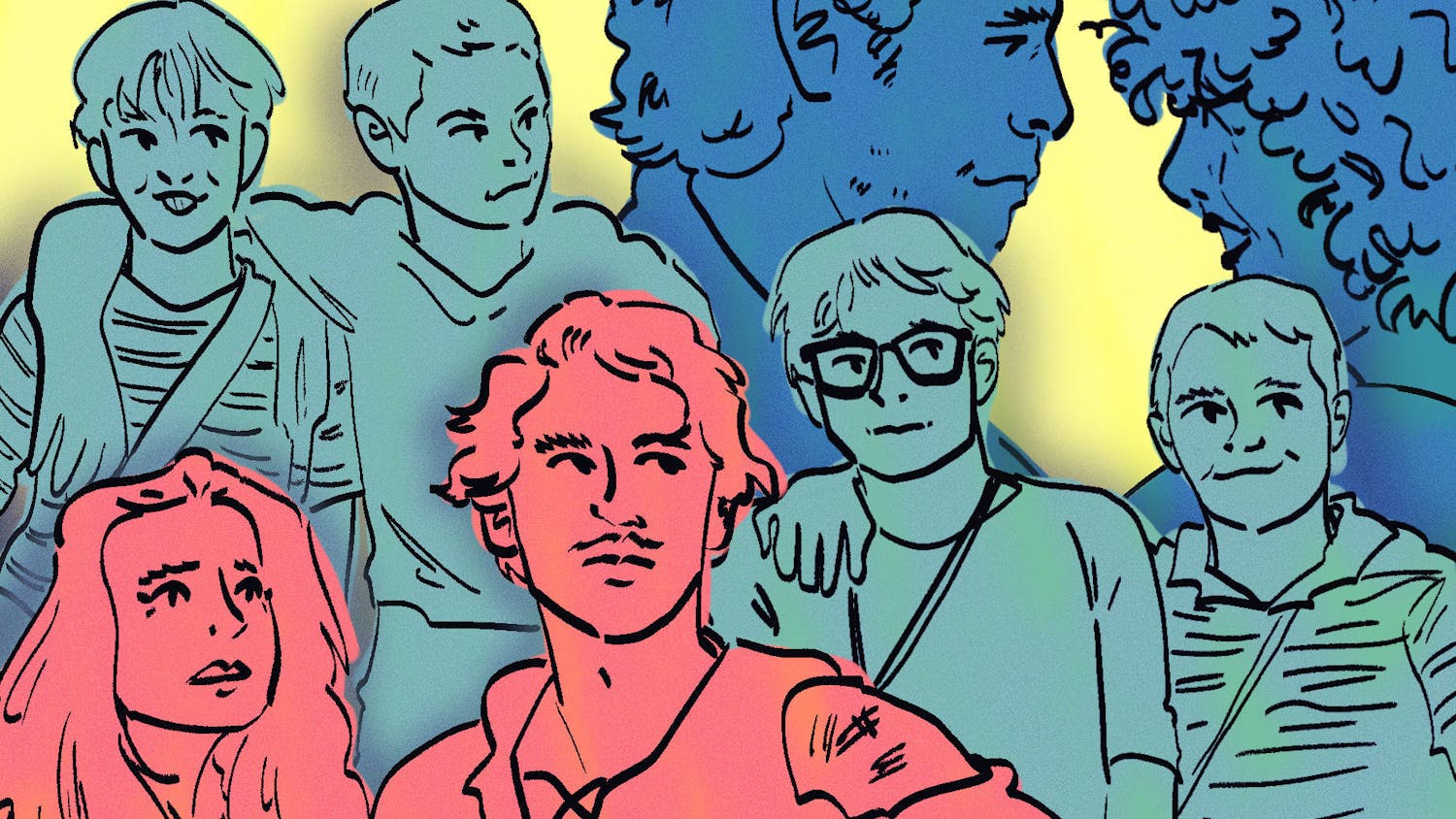On April 12, Sanborn Library hosted a Q&A with three professional translators: Czech specialist Alex Zucker, Hindu and Urdu specialist Daisy Rockwell and Italian and German specialist Alta Price.
The event, dubbed “The Bridge,” was catered by the Nest Café and co-sponsored by the comparative literature program, the English and creative writing department, the Leslie Center for the Humanities and the Office of the Associate Dean for Interdisciplinary Programs. French and Italian department chair Andrea Tarnowski organized the event, which drew around 40 students from across the College’s humanities departments.
“Planning this event has really been an education, finding out the sources for who translates what languages, what the signs of successful translation are,” Tarnowski said.
Zucker reflected on the powerful calling he felt to become a translator, explaining that he and his fellow translators had felt an “innate responsibility” to share certain non-English texts with the English-speaking world.
“Translation is … how we can understand people from across the world who are always to some degree different from us, yet also inextricably linked to us,” Tarnowski said. “It’s another individual, another representative of another group. You have to do a form of translation to understand that individual [and] understand their experience.”
Zucker said he most recently translated the Czech text “A Sensitive Person” by Jáchym Topol, which was shortlisted for the European Bank of Reconstruction and Development Literature Prize in 2024.
“Each book is its own theory,” Zucker said. “It is its own world. Each time we translate a book, we essentially create our interpretation of that book.”
In 2010, Zucker won the National Translation Award for his translation of Petra Hůlová's 2002 début novel, “All This Belongs to Me,” according to Tarnowski. Zucker was awarded the honor for his excellence in translating Czech culture successfully into the English language and retaining both the novel’s literal and metaphorical meanings, Tarnowski said.
During the panel, one student said learning a language can be like “building a lego” — as one learns language by building a cohesive structure of meaning. Yilu Ren GR, who is studying comparative literature, said she appreciated this metaphor.
“As a Chinese drill instructor, I use the lego metaphor to show students how the Chinese characters are combined into one Chinese word as the infrastructure of Chinese vocabulary, which is vastly different from the English vocabulary,” Ren said. “You’re putting pieces together, but it’s an organic new entity which we’re making from the pieces.”
Ren — who hopes to pursue a career in translation after graduating this June — asked whether the “top experts in the field” are willing to teach prospective translators the art of translation.
“Absolutely, I would love to lecture at a university about … the art of translation, but it’s just not a luxury that I particularly have or anticipate having, at least in the coming year or two,” Zucker responded.
According to the Dartmouth English department website, the event was held in honor of English professor Monika Otter, who died on May 5, 2023. Otter, whose scholarship focused on the use of language, worked in Dutch, English, French, German, Greek, Italian, Provençal, Spanish and medieval Welsh.
Tarnowski concluded the program by emphasizing the intricacies of translation, as well as the creativity it requires.
“Translation is niche in the sense that the splashy success tends to be for the authors of a given literary piece,” Tarnowski said. “But I think that there has been over the last decade an increasing attention paid to translation as its own real craft or art as opposed to something that’s derivative. All the panelists have said here that they really make a new creation, and this creation should also be on its own terms.”




